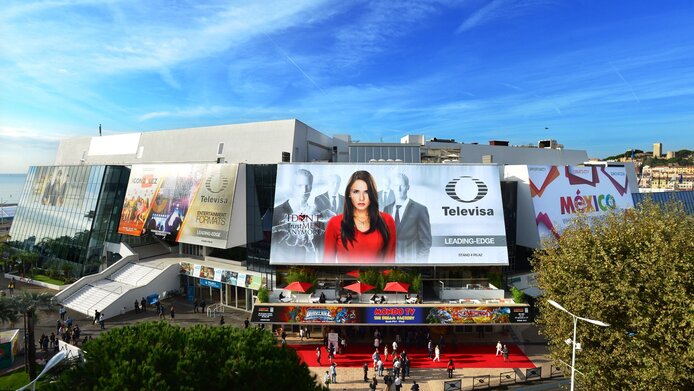Trade fairs as driving forces of cultural globalisation

Monk, Lady Gaga and Mr. Grey are high-profile guests in Austrian living rooms. But why do we in Austria see, hear and read certain globalised media products and not other ones?, asks Andreas Gebesmair from the Department Media and Economics at the St. Pölten University of Applied Sciences. His answer is: "The responsibility for this is with intermediaries who select, evaluate and market these products for the Austrian market." But how are blockbusters, chart toppers and bestsellers distinguished from the flops? How and on what basis do content buyers make their purchasing decisions? The "Trading Cultures" project funded by the Austrian Science Fund FWF empirically considers a key factor influencing cultural globalisation: the culture of trading media products.
Insights into the culture of global trade
International trade fairs are seen as central to the understanding of these cultures. They are not just trading centres for the media products themselves but also for trends, expert opinions and business models that fundamentally determine the global distribution of new media products. In its cross-industry study, the research team headed by Andreas Gebesmair is now examining the extent to which sales and purchasing decisions are based on assumptions, routines and rules that are shared in the industry. These are studied at three key international trade fairs: the TV content market MIPCOM, the music trade show midem and the Frankfurt Book Fair.
Our future preferences
Purchasing decisions on the trading of innovative media products are risky: the price of wrong decisions is high and success is difficult to assess. Those involved therefore tend to imitate legitimate business practices: "Professional content buyers must be able to assess what 'their' audience will want. In doing so, they rely on the so-called 'buzz' on the trade fair floor and on the evaluation standards that are communicated and shared there. On the other hand, however, certain established 'rules of thumb' and experience based intuition also play a role," explains Gebesmair.
Developing a "good nose"
The jointly shared basis of assessment and their dissemination is analysed in the project using ethnographic methods, especially participatory observation at the trade fairs. "This method is particularly suitable for gaining deep and true-to-life insights into the everyday and taken for granted practices of industry representatives," says Christoph Musik, a researcher on the "Trading Cultures" project. In addition to on-site observation, in-depth interviews with international media managers are also planned. The analysis of industry trade journals such as "Hollywood Reporter", "Billboard" or "Publishers Weekly" and their roles as opinion leaders completes the data collection.
Expertise from practitioners
The international project also takes economic and cultural differences into account: "We will contrast Austria and the German-speaking countries with at least two other countries with different backgrounds. On the one hand, we have the United Kingdom which exports a high volume of cultural goods. Turkey, on the other hand, has a large number of domestic productions and few imports." Experts from leading media companies in Austria will support the researchers by helping them to connect with contacts at the trade fairs and identify strategies and trends.
Understanding economic activity
The results of the FWF research project will not just support the practice of prospective media experts but will also enable media professionals to query established patterns of behaviour and decision-making that are perceived to be taken for granted. The findings of the project will also contribute to a better understanding of fundamental issues of economic activity. This particularly refers to the extent to which media managers in their everyday working lives adhere to tried-and-tested routines and legitimate classifications or to the circumstances under which they are prepared to question these and try something new.
Top Citizen Science (TCS) The "Inside Trading Cultures" project involves citizens with an interest in literature and book trade in scientific research. Through the involvement of people with different horizons of knowledge and experiences in ethnographic fieldwork, the project aims to achieve a multiplicity of perspectives on the practices and routines taking place at business-to-business book trade fairs. Top Citizen Science funding initiative
Personal details Andreas Gebesmair is head of the Österreichisches Institut für Medienwirtschaft (Austrian Institute of Media Economics). Currently he conducts the FWF project “Trading Cultures. An ethnography of trade fairs for TV programs, music and books” until 2018. His research interests are primarily concerned with the structures of the production and reception of culture. Over the course of his scientific career he has received an APART grant from the ÖAW (Austrian Academy of Sciences) and spent extensive research periods at the Vanderbilt University and the Center for Arts and Cultural Policy Studies (CACPS) at Princeton University in the USA. Christoph Musik is a researcher at the Österreichisches Institut für Medienwirtschaft (Austrian Institute of Media Economics). The main focus of his research is the ethnography of technology and media.
Publication





